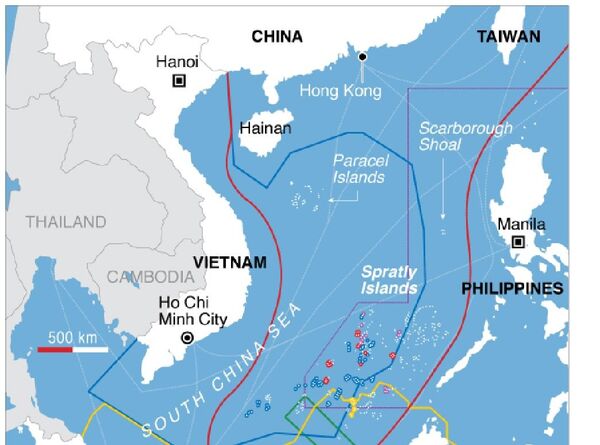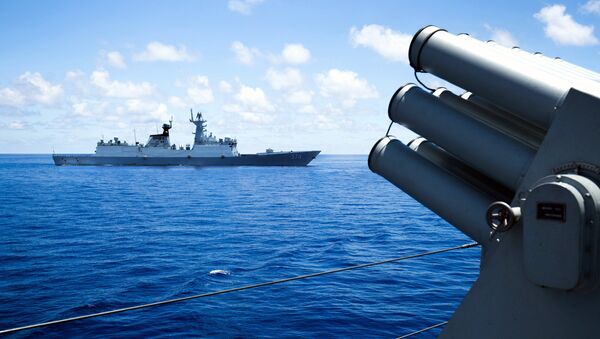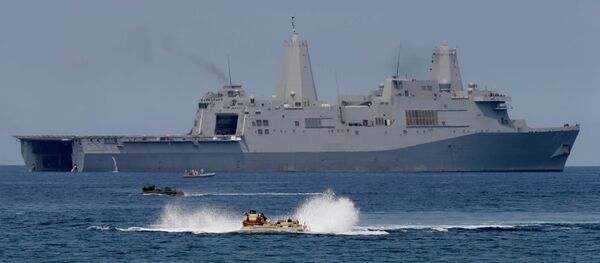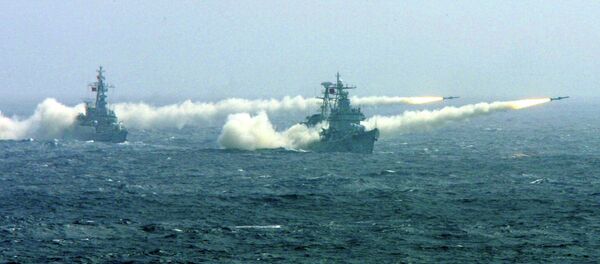The lawsuit hinges on a “nine-dash line” that Beijing has used to define its territories in the region since the middle of the 20th century. Manila has denounced the claims as having neither historical nor legal grounds, turning to the Hague in 2013 for arbitration.

China has refused to participate in the legal process and promised to reject any decision. Beijing has also constructed air strips on artificial islands in waters it considers sovereign territory.
On Friday, the China Daily newspaper issued an editorial that claimed that the Permanent Court of Arbitration (PCA) in the Hague has no jurisdiction in the conflict. The paper labeled the trial a "farce" and said that any upcoming decision will be "illegal, null and void from the outset."
Another state-run Chinese paper, Global Times, went further, stating that Beijing "will fight back" if tensions in the South China Sea keep escalating.
Meanwhile, the United States, a supporter of the Philippines in the row, sent three destroyers to patrol areas in vicinity of Scarborough Shoal and Spratly Islands, according to the Navy Times.
US experts quoted in the report said the deployment is "a deliberate show of force" aimed at China in anticipation of the ruling.
According to Robert Haddick of US Special Operations Command, China has several options to respond militarily, if the Hague rules against them. While their use is viewed as unlikely, Beijing has recently successfully tested its DF-21D anti-ship ballistic missiles, capable of reaching targets in the Philippine Sea.
China also has HQ-9 SAMs and ASCMs missiles deployed in the Spratly Islands, and is currently holding naval drills in the Paracel Islands.
According to the China Daily, Beijing seems to be preparing for a decision that favors its rivals. The paper said Beijing must “be prepared for all eventualities,” stating, "This is not being alarmist, it is being realistic."




